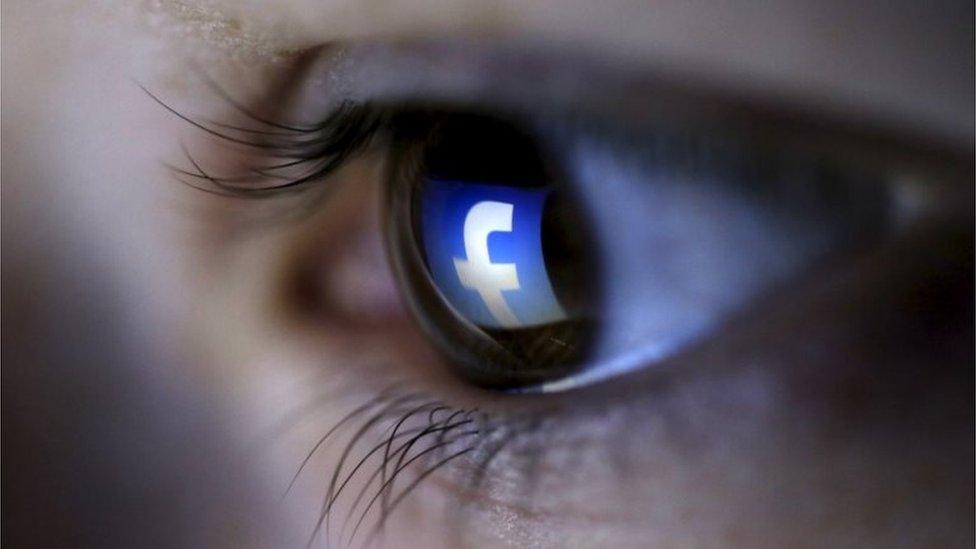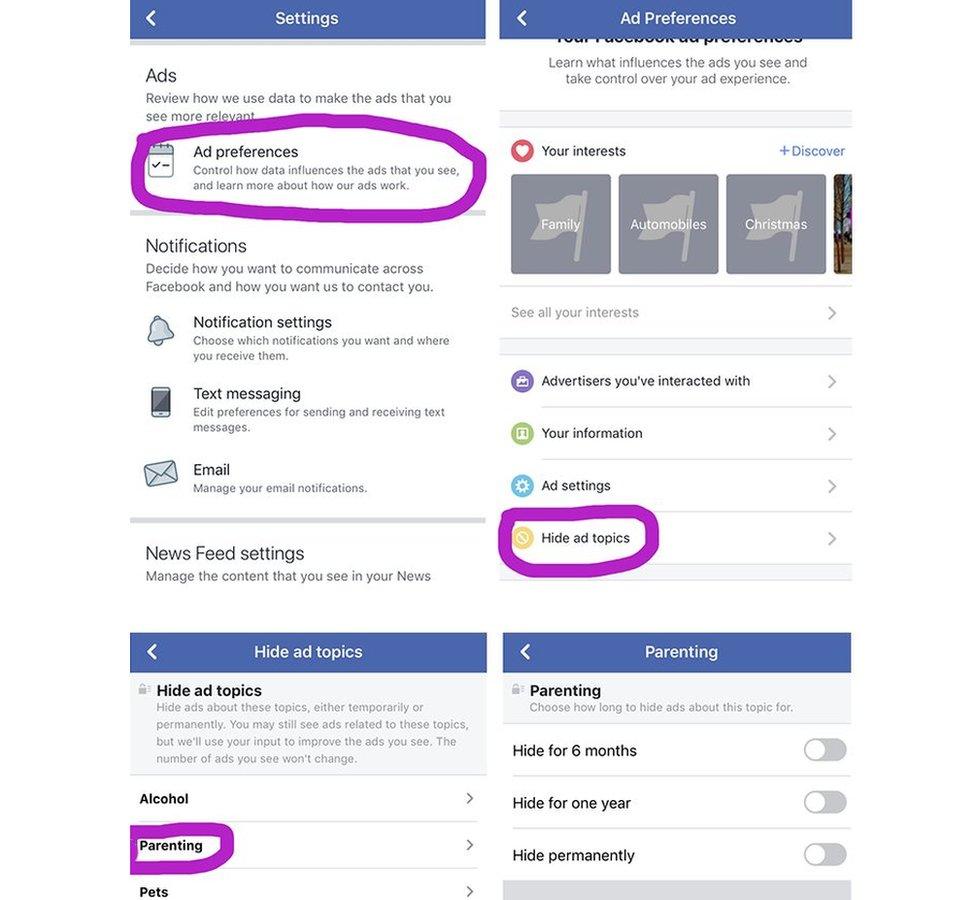Bereaved mother criticises Facebook over baby ads
- Published

Ms Brockell said many other bereaved parents had contacted her to tell of similar experiences
The mother of a stillborn child has called on tech companies to rethink how they target ads after she was inundated with baby-related promotions.
Gillian Brockell wrote to Facebook, Instagram, Twitter and Experian, saying if they were smart enough to deduce she had been pregnant, they should have realised her baby had died.
Other internet users have remarked that they have had similar experiences.
Facebook and Twitter have acknowledged they could do better.
'Heartbroken'
Washington DC-based Ms Brockell posted a message to Twitter last month to share the news that her son had died in the womb.
She suggested that the technology companies should have picked up on this or other online activity resulting from her son's death.
Instead, she said, the companies remained focused on her earlier pregnancy-related posts and actions.
Allow X content?
This article contains content provided by X. We ask for your permission before anything is loaded, as they may be using cookies and other technologies. You may want to read X’s cookie policy, external and privacy policy, external before accepting. To view this content choose ‘accept and continue’.
"Did you not see the three days of silence, uncommon for a high-frequency user like me?" she wrote.
"And then the announcement with keywords like 'heartbroken' and 'problem' and 'stillborn' and the 200 teardrop emoticons from my friends? Is that not something you could track?"
She added that when she had tried to actively discourage the technology companies from showing her the pregnancy-related promotions, they had misinterpreted her response.
"When we... click 'I don't want to see this ad,' and even answer your 'Why?' with the cruel-but-true 'It's not relevant to me,' do you know what your algorithm decides?
"It decides you've given birth, assumes a happy result, and deluges you with ads for the best nursing bras... tricks to get the baby to sleep through the night... and the best strollers to grow with your baby.
"And then, after all that, Experian swoops in with the lowest tracking blow of them all: a spam email encouraging me to 'finish registering your baby' (I never 'started' but sure) to track his credit throughout the life he will never lead."
'Working on it'
Facebook's advertising chief, Rob Goldman, has been the first of the executives responsible to respond.
He apologised for Ms Brockell's experience but noted that the platform's settings included an option to block ads about topics the user might find painful, including parenting.

Facebook's settings let users ask for parenting ads to be blocked
"It still needs improvement, but please know that we're working on it," he added, external.
Ms Brockell thanked him for his reply but said the solution was not ideal.
Allow X content?
This article contains content provided by X. We ask for your permission before anything is loaded, as they may be using cookies and other technologies. You may want to read X’s cookie policy, external and privacy policy, external before accepting. To view this content choose ‘accept and continue’.
She later added that even after she had taken the suggested measure, she was still shown an advert that suggested she consider adoption, which was inappropriate given the circumstances.
Allow X content?
This article contains content provided by X. We ask for your permission before anything is loaded, as they may be using cookies and other technologies. You may want to read X’s cookie policy, external and privacy policy, external before accepting. To view this content choose ‘accept and continue’.
Other users have also reported that Facebook's Hide Ad Topics setting does not always have the desired effect.
Last month, an English mother of a stillborn girl wrote an open letter to the social network, external after she told it to hide parenting ads as well as anything related to babies, family and the home.
She said she had still been targeted with baby-related products.
"Your ads were unintentionally taunting me with reminders of what I'd lost," she wrote.
'Facebook baby ads taunted me after stillborn'
Facebook told the BBC this had been caused by a bug in its system that had since been fixed.
Twitter has also issued a brief statement.
"We cannot imagine the pain of those who who have experienced this type of loss," it said.
"We are continuously working on improving our advertising products to ensure they serve appropriate content to the people who use our services."
The BBC understands Experian plans to comment later after it has spoken directly to Ms Brockell.
- Published18 October 2018
